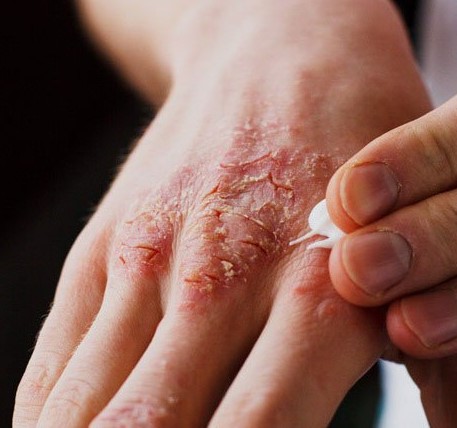
Frequent hand washing in last year rises Eczema...
In this pandemic we all started following good habit of hand hygiene, frequent hand wash and sanitizing. It is the best way to keep ourselves protected from covid 19 infection. But some people with underlying condition of eczema finding it challenging to keep themselves safe from covid while keeping their eczema under control.
Frequent washing of hands and using sanitizer makes skin more dry and more irritated.
You can keep eczema away even though you are washing hands frequently...
Know how you can....
What is Eczema?
Eczema is a common skin disorder that affects all ages. Also called as atopic dermatitis and it is marked by itchy and inflamed patches of skin.
Signs and symptoms:
Common triggers of eczema flare-ups may include:
How do I know if I have eczema?
Visit your doctor they may help you by assessing your signs and symptoms. They might ask you to do some tests.
Some simple tips for Eczema:
Ayurveda and Eczema:
The signs and symptoms of Eczema is well explained in Ayurveda under ‘VICHARCHIKA'.
To treat eczema, it is essential to have the guidance of a skilled practitioner who can tailor an herbal and dietary program specific to your individual needs. Not all cases can be treated or respond to treatment in the same way.
A progressively cleaner diet may be necessary to promote the healing process and allow proper digestion of food (to avoid further accumulating toxins in the body) along with the unique cleansing therapies like Panchakarma for deep detoxification.
Stress management program that would include shirodhara, yoga and meditation to strengthen the body while calming your mind.
Abhyangam(ayurveda massage) helps you to reduce dryness of skin.
There are some beautiful herbs and topical herbal oils which can help in Eczema.
If your eczema already flared and you need help to get it under control. We are here to help.
Want to discuss more, contact us at Ayurmelbourne on 0458430849 or email ayurmelbourne09@gmail.com